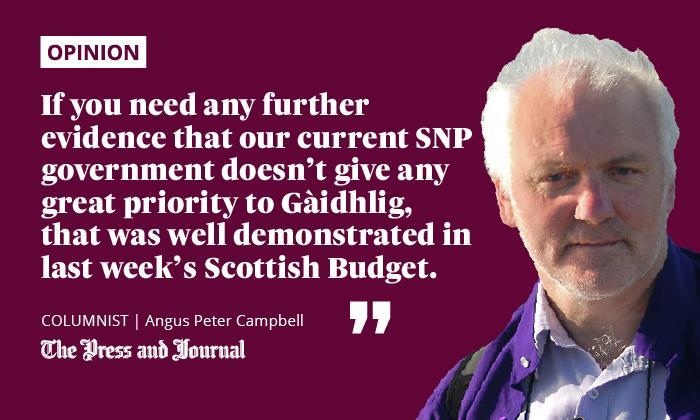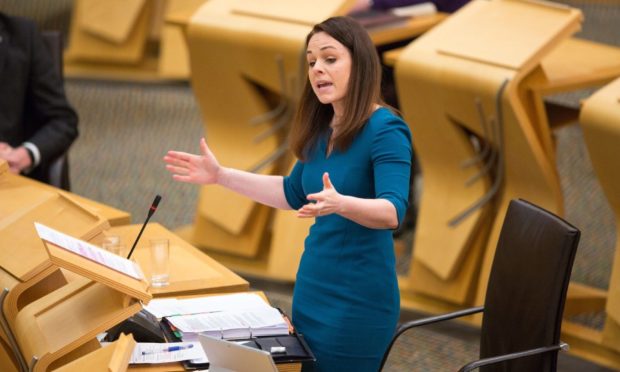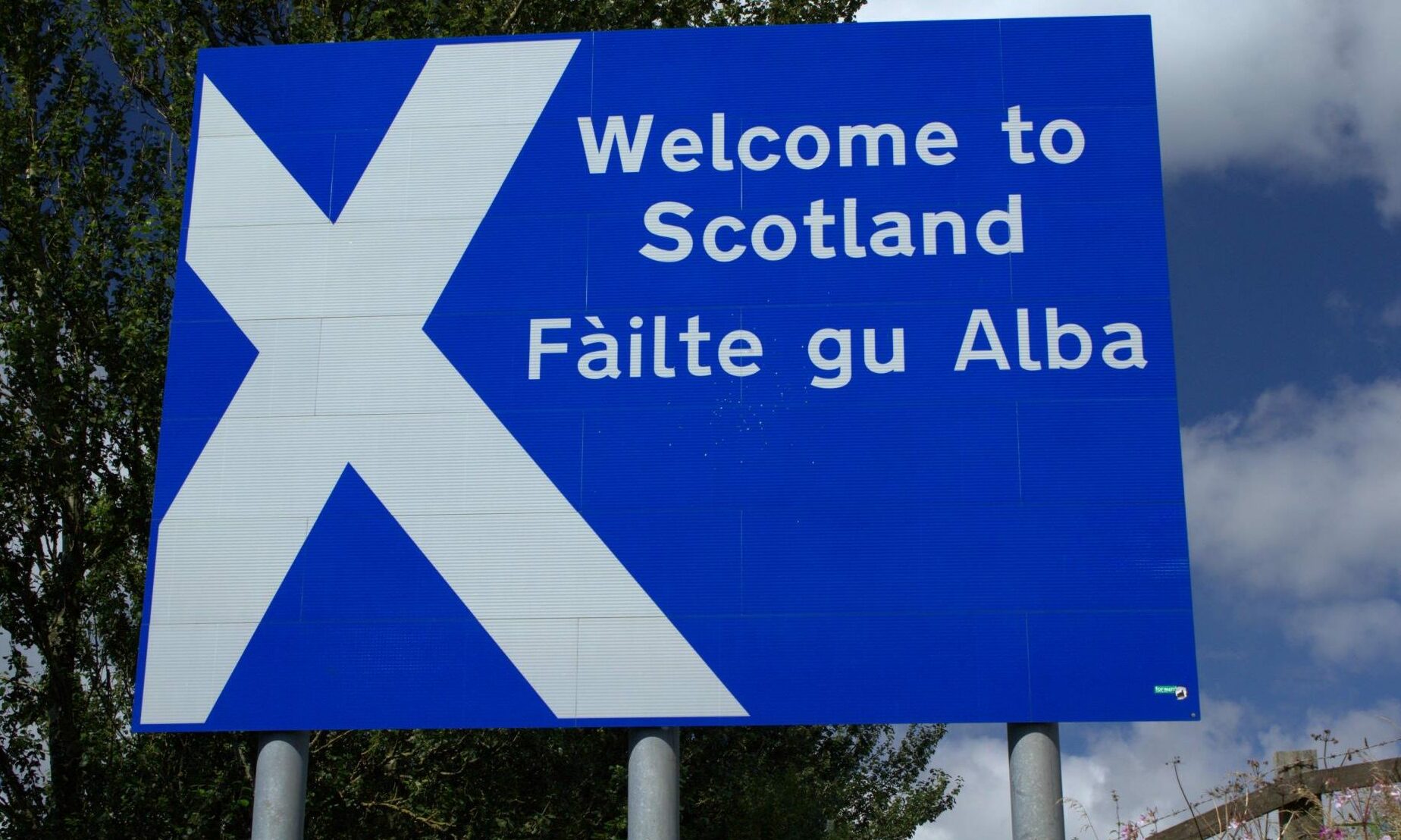It’s now 18 months since an important academic book, The Gaelic Crisis in the Vernacular Community was published. A lot of dust has gathered since then.
The book’s main conclusion is that, without urgent action, Gàidhlig as a community language could vanish within the next 10 years. One of the solutions offered is that an islands-based trust be established to progress community-rooted policies and practices which would give the language a fighting chance of survival and growth.
Unfortunately, like a family squabble at a wedding, some Gaels felt this meant they were being marginalised and diminished, and that the excellent growth in Gaelic-medium education and development in places like Edinburgh, Glasgow and Inverness was being devalued. And, once an auntie is convinced that the excellent drizzle cake she made has been overlooked, she’s no’ dancing.

Perhaps more importantly, the government-appointed quango tasked with overseeing the development of Gaelic, Bòrd na Gàidhlig, agree with her. The Bòrd dismissed any plans for an islands-based trust, saying that things can be progressed well enough from within the existing structures. Hmmm.
That itself lets the Scottish Government off the hook. For if the official organisation they appointed to implement their policies is happy enough with how things are, why on earth should the administration in Edinburgh stir that particular midges’ nest? The last thing a wedding cèilidh needs is an officious hotel manager marching in saying that they have to disperse and continue their dancing in some far-flung Hebridean isle.
So, as far as I can see, the scholarly report has gathered dust ever since. And if you need any further evidence that our current SNP government doesn’t give any great priority to Gàidhlig, that was well demonstrated in last week’s Scottish Budget.
The world is diminished when languages are silenced
The Budget, delivered by the Gaelic-speaking cabinet secretary for finance and the economy (and my local MSP), Kate Forbes, saw real-terms cuts in spending on Gaelic.
Here’s the reality: overall spending in the budget went up by 4.4%, while the Gaelic budget increased by 0.4%, at a time when inflation is at 5.1% and rising. It’s as if I were to give my young daughter 50 pence to go to the shop to buy something that costs £5.10. She’d return empty-handed. Well, maybe with a lollipop.
I’m well aware that there are many things Ms Forbes has to budget for. None more important than the health service. Of which Gàidhlig is a part. Not merely because Gaelic-speakers and supporters pay taxes which contribute to the NHS, or because many Gaels work within it as doctors and nurses and support staff, but because the language itself may be part of their very health, and the health of their communities.
It’s like the environment. How denuded and damaged a place is when trees are cut down, rivers and lochs polluted, birds silenced, flowers and plants and crops withered. So with language. Whether Gaelic or Doric, English or Lallans, French or German, the world is diminished when, or if, these languages are silenced.
Government has a central role to play
As things stand, there’s little danger of that happening currently with this beautiful language I’m writing in, but there are hundreds of minority languages and cultures in daily danger. Losing them is like globally losing the Amazonian rainforest. Or, locally, a country lane or open field for yet another housing or office development.
In the Western Isles, despite rapidly-changing demographics, Gàidhlig is still used on a daily basis as a community language
Gaelic is not the Amazon. Rather, it is a small, precious ecosystem. And, as with any ecosystem, the first step is to protect it. Which is why the islands language trust was proposed in the first place. Not based in the mighty metropolis of Inverness but in the Western Isles where, despite rapidly-changing demographics, Gàidhlig is still used on a daily basis as a community language.
It is those small and diminishing “heartlands” that need protecting and developing. That goes well beyond language, to land, housing, and jobs. To creating communal alternatives to rampant capitalism, which consumes everything in its path.
It’s not to be insular or to suggest that the best Gàidhlig is in Boisdale (of course it is!) but to simply say that any growing thing has to have roots. The deepest and strongest roots are still in the Hebrides, so let’s nourish them. Along with all those marvellous roots – some equally long-established, many new – in places such as Govan and A’ Ghearmailt.
The government won’t save the language: only those speaking and using and learning and supporting it will do that. But government has a central role to play. After all, the people are the government, in Hogha Mòr and the Howe o’ Auchterless as much as in Holyrood.
Angus Peter Campbell is an award-winning writer and actor from Uist

